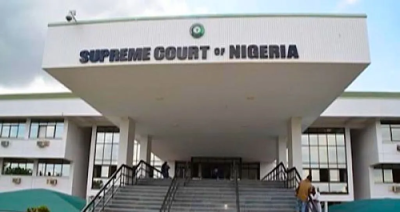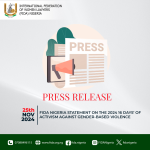The recent nullification of the National Lottery Act by Nigeria’s Supreme Court, following a legal challenge spearheaded by Lagos State, has sparked widespread acclaim among constitutional lawyers, senior advocates, and state governments. The landmark decision is being hailed as a significant milestone in the nation’s pursuit of true federalism and an affirmation of the rule of law.
Supreme Court’s Landmark Judgment
In a unanimous decision delivered by a full panel of seven justices, with Hon. Justice Mohammed Idris delivering the lead judgment on November 22, 2024, the Supreme Court upheld Lagos State’s position that the National Assembly lacks the constitutional authority to legislate on lottery operations within states. Instead, such regulatory powers fall exclusively within the purview of state governments under Nigeria’s federal system.
The case, initiated by Lagos State, challenged the National Lottery Act on the basis that lottery regulation is not listed in the Exclusive or Concurrent Legislative Lists of the 1999 Constitution (as amended), which define areas of federal legislative competence. Lagos State argued that the National Assembly could only legislate on lottery matters for the Federal Capital Territory (FCT), Abuja, and not the states. Following the initial suit, the Supreme Court ordered the joinder of all 36 states of the federation, resulting in 21 states aligning with Lagos, while 14 supported the federal government.

The federal government, represented by lead counsel Abdul Rafindadi (SAN), had counter-argued that lottery operations, due to their trans-border nature facilitated by technology and online platforms, fell under trade and commerce and could therefore be regulated by the National Assembly. This position was ultimately rejected by the Supreme Court, which ruled that lottery operations remain residual matters reserved for states.
Lottery Act : Reactions from Key Legal Experts
- Bode Olanipekun (SAN), Counsel to Lagos State:
Olanipekun described the judgment as a historic moment in Nigeria’s legal and federal evolution, noting it underscores the judiciary’s commitment to upholding federalism. According to him, the judgment paves the way for restructuring Nigeria’s overly centralized system, empowering states to manage their internal affairs more effectively. - Prof. Mike Ozekhome (SAN), Constitutional Lawyer:
Prof. Ozekhome applauded the ruling, describing it as a dismantling of the “warped unitary system” often masquerading as federalism in Nigeria. He emphasized that the constitution explicitly reserves lottery and gaming as residual matters for states, and the Supreme Court’s decision aligns with the true tenets of federalism. - Ahmed Raji (SAN):
Raji clarified that the ruling did not nullify the National Lottery Act outright but limited its application strictly to the Federal Capital Territory (FCT). He noted that the decision effectively ends years of federal government overreach and its financial benefits derived from the Act in states.
Impact on Federalism and Revenue Generation
The judgment is expected to have profound implications for Nigeria’s federal structure and revenue generation. Observers believe it will set a precedent for further decentralization of powers, encouraging states to assert their constitutional rights in other areas of governance. Olanipekun emphasized that the decision would enhance the revenue autonomy of states, particularly given the recent proliferation of lottery and gaming activities.
Lottery Act : Lagos State Government’s Response
The Lagos State Government, in a statement issued by the Commissioner for Information and Strategy, Gbenga Omotoso, celebrated the Supreme Court’s ruling as a historic victory for federalism, the rule of law, and state rights. The statement credited President Bola Tinubu’s long-standing advocacy for true federalism and lauded his successors, Babatunde Fashola (SAN) and Governor Babajide Sanwo-Olu, for their steadfast commitment to the cause.
The government reaffirmed that the Lagos State Lotteries and Gaming Authority (LSLGA) remains the sole regulatory body for lottery and gaming activities in the state. It urged unlicensed operators to regularize their status or face legal consequences while reiterating its commitment to fostering a business-friendly environment for legitimate operators and protecting residents from the adverse effects of unregulated gaming.

Implications for Federal-State Relations
Legal experts have hailed the decision as a critical step towards recalibrating Nigeria’s federal structure. Prof. Ozekhome highlighted that the ruling is a “breakthrough” in curbing federal encroachments on state powers, emphasizing the need for further judicial and legislative reforms to address systemic imbalances.
Conclusion
The Supreme Court’s decision marks a pivotal moment in Nigeria’s legal history, affirming the principles of federalism and reshaping the governance of lottery operations. By restoring regulatory powers to states, the ruling has not only bolstered state autonomy but also reignited the broader conversation on restructuring and fiscal federalism in Nigeria.









